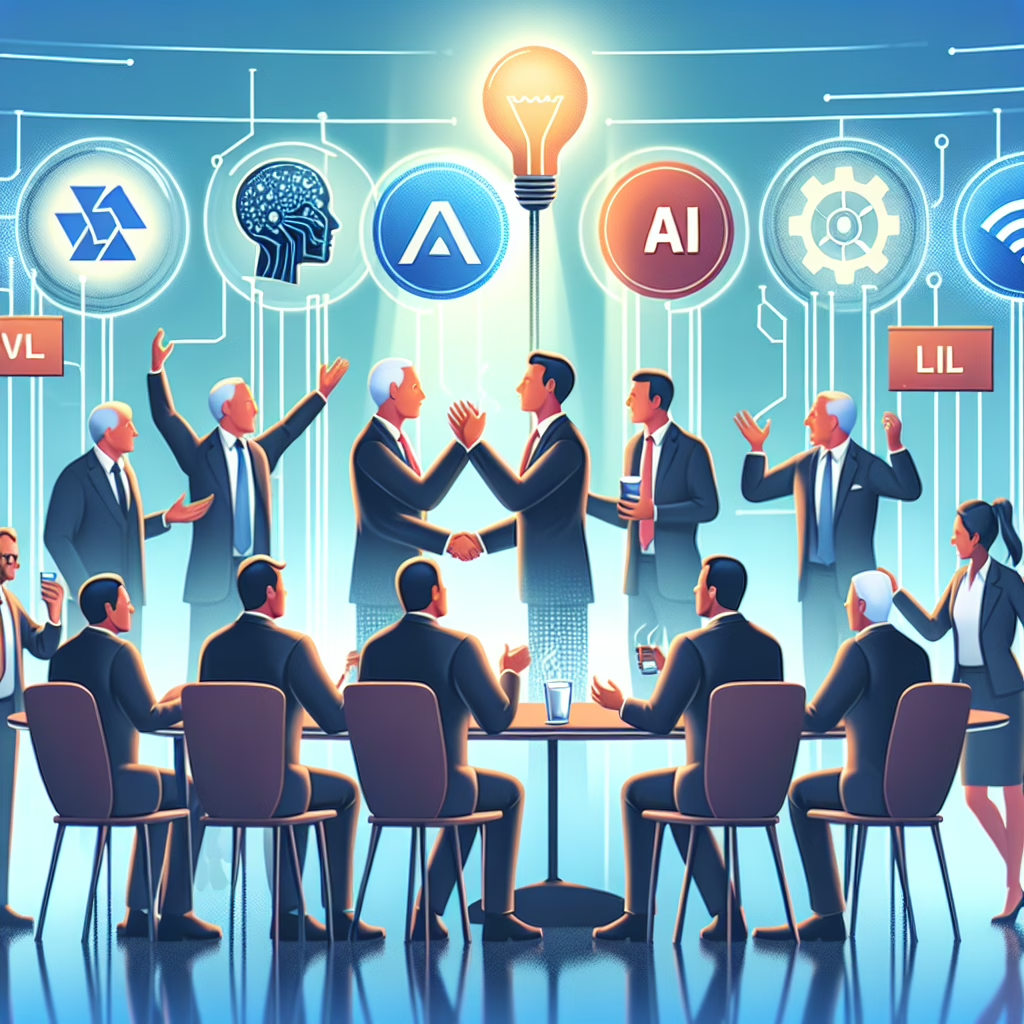In a world where tech giants seem to be in a constant race to outsmart each other, US senators are donning their detective hats. They’re digging into the intriguing AI deals between Google and Microsoft, striving to ensure that competition remains alive and kicking! Let’s dive into this fascinating tale of technology, politics, and the occasional raised eyebrow, where innovation and rivalry collide.
AI Deals: The New Gold Rush?
Picture this: two titans of technology engaging in a high-stakes game of chess, with artificial intelligence as their secret weapon. That’s right! Google and Microsoft are not just playing in the sandbox; they’re building empires. But wait! What’s this? Senators are peeking over the fence, wondering if this playtime could lead to a monopoly on AI innovation. As the competition heats up, concerns arise about potential implications for smaller players in the market.
As AI becomes the shiny new toy for businesses, the stakes are higher than ever. With these influential companies making significant moves, the senators are apprehensive that these partnerships might discourage healthy competition. After all, a competitive market is like a well-watered garden: it thrives with a variety of ideas and innovations blossoming from different players.
What’s Cooking in Washington?
Let’s take a step back and see what’s brewing in the Senate. The focus is on how these tech behemoths’ partnerships could shape the future landscape of AI. Imagine if we let one company have too much power—it’s like letting one kid hog all the toys at recess! The Senate Judiciary Committee has turned its gaze towards these tech deals. They hope to uncover whether they truly enhance innovation or simply serve as a shortcut to dominance.
They’re asking tough questions that would make even seasoned CEOs sweat a little. The scrutiny comes as a reminder that oversight in this rapidly evolving field is not just beneficial but essential to maintain a fair playing ground. With increased pressure, companies might feel compelled to rethink their strategies and focus on innovation rather than just aim for market supremacy.
The Big Questions Senators Are Asking
Senators want answers about how these partnerships impact competition in the tech industry. Here are some key inquiries:
- Are these collaborations stifling smaller companies? Because let’s face it, nobody likes an unfair game!
- Do consumers benefit from these AI advancements? If not, what’s the point of all this tech wizardry?
- How transparent are these deals? Trust but verify, right?
The senators aim to gather insights that help them understand whether these corporate maneuvers foster innovation or just create barriers for up-and-coming players. Who can blame them? They want to ensure that every entrepreneur gets a fair shot at success in a marketplace where competition thrives.
The Ripple Effect of AI Partnerships
Imagine walking into your favorite coffee shop only to find out they’re now exclusively serving drinks from one brand because another company struck a deal with them. Sounds unfair? That’s precisely what senators fear could happen in the tech world. These AI partnerships could have profound implications not only for competition but also for consumers.
If Google and Microsoft dominate the landscape, we might see less diversity in services and products available to us. Competition often drives innovation, which means fewer choices could lead to stagnation—yikes! The fear is that as these two giants dominate, smaller competitors may struggle to keep up, ultimately impacting consumer choice.
A Call for Regulation or Collaboration?
As senators probe deeper into these AI deals, they find themselves at a crossroads: should they regulate these tech titans or encourage collaboration? It’s like trying to decide between broccoli and chocolate cake—both have their merits! Regulation could help level the playing field, ensuring everyone gets a slice of the pie.
However, too much regulation might stifle creativity and slow down progress. It’s a delicate balance, much like walking a tightrope while juggling flaming torches! There’s a crucial need to promote a mixed approach where companies are encouraged to innovate while maintaining transparency and fairness in the process.
The Future: A Collaborative Landscape?
The hope is that instead of creating an environment where only the biggest players thrive, we can foster a collaborative landscape where innovation flourishes across various companies. This way, everyone benefits—from startups with fresh ideas to consumers enjoying better products.
As we look toward 2025 and beyond, we’ll need to keep an eye on how these discussions unfold. Will we see new regulations that promote competition? Or will we find ourselves stuck in a world where tech giants rule supreme? Only time will tell!
Your Thoughts Matter!
What do you think about these investigations into Google and Microsoft? Should there be stricter regulations on AI partnerships? Or do you believe that collaboration leads to better innovation? Share your thoughts below!
A big thank you to TechRadar for shedding light on this important topic! Additionally, check out other informative articles like Most Americans don’t trust AI and Google Cloud Next 2025 updates for a broader understanding of AI and its implications.

